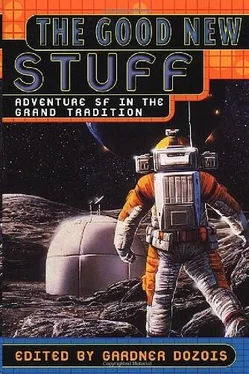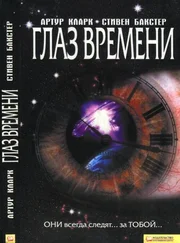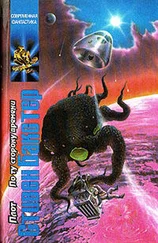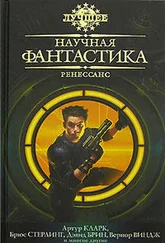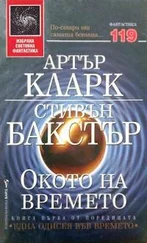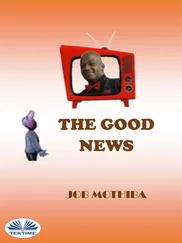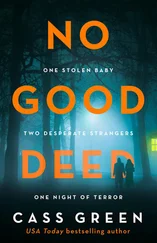Стивен Бакстер - The Good New Stuff
Здесь есть возможность читать онлайн «Стивен Бакстер - The Good New Stuff» весь текст электронной книги совершенно бесплатно (целиком полную версию без сокращений). В некоторых случаях можно слушать аудио, скачать через торрент в формате fb2 и присутствует краткое содержание. Год выпуска: 2002, ISBN: 2002, Издательство: St. Martin's Griffin, Жанр: Фантастика и фэнтези, на английском языке. Описание произведения, (предисловие) а так же отзывы посетителей доступны на портале библиотеки ЛибКат.
- Название:The Good New Stuff
- Автор:
- Издательство:St. Martin's Griffin
- Жанр:
- Год:2002
- ISBN:0-312-26456-9
- Рейтинг книги:3 / 5. Голосов: 1
-
Избранное:Добавить в избранное
- Отзывы:
-
Ваша оценка:
- 60
- 1
- 2
- 3
- 4
- 5
The Good New Stuff: краткое содержание, описание и аннотация
Предлагаем к чтению аннотацию, описание, краткое содержание или предисловие (зависит от того, что написал сам автор книги «The Good New Stuff»). Если вы не нашли необходимую информацию о книге — напишите в комментариях, мы постараемся отыскать её.
The Good New Stuff — читать онлайн бесплатно полную книгу (весь текст) целиком
Ниже представлен текст книги, разбитый по страницам. Система сохранения места последней прочитанной страницы, позволяет с удобством читать онлайн бесплатно книгу «The Good New Stuff», без необходимости каждый раз заново искать на чём Вы остановились. Поставьте закладку, и сможете в любой момент перейти на страницу, на которой закончили чтение.
Интервал:
Закладка:
That got to them— he could smell their anger. His throat was dry, but he dared not spare the time to cough. His head was light, and a cool breeze stirred his curls. He spoke, but did not listen to the words.
Yarrow was lost, somewhere on the plaza. As he spoke, the Minotaur listened for her, sniffed the air, felt for vibrations through the stone— and could not find her. "Inaction is a greater tyrant than error ever was!" he cried, listening to heads nodding agreement with the old familiar homily. He could hear the frantic hopping motions the madwomen made, forward and back again, baffled and half-fascinated by the hormones he was generating, by the cadences and odd rhythms of his words.
The speech was a compulsion, and the Minotaur paid it no more mind than he did to the sliding of muscles under skin that went into his gestures, some wide and sweeping, others short and blunt. A whiff of girlish scent finally located Yarrow, not two arm's lengths away, but he could not go to her. The words would not release him, not until he had spoken them all.
And when, finally, he lowered his arms, the plaza was filled with people, and the madwomen's harnesses had been ripped from them, the drug pumps smashed underfoot, their necks snapped quickly and without malice.
He turned to Yarrow, offered his hand. "Come," he said. "It's time to go home."
The Minotaur lay belly-down on the earth under the wagon. He stared down his muzzle at a slice of early-morning sky framed by two wheel spokes. The clouds of energy were still slowly dissipating. "I'd love to go out there," he said. "To see other worlds."
The orange-skinned woman scratched him above the ears, at the base of his small ivory horns. Her hands were strong and sure. "They couldn't refuse you passage. What's stopping you?"
He nodded upward. "He gets sick— I'd have to go alone."
A triceratops beetle crept laboriously past his nose. He exhaled sharply, trying to turn it over, failed. "You two are inseparable, aren't you?" the woman asked.
The beetle was getting away. He snorted sharply again, twice. "I guess."
"Won't he be upset that I chose you over him?"
It took the Minotaur a moment to puzzle out her meaning. "Ah! You mean— I see. Good joke, very good joke!" He laughed without taking his eyes away from the beetle, watched it escape into the grass. "No, the Harlequin doesn't know that women are important."
It did not take long to gather belongings: the Minotaur had none and Yarrow few. "You can find your mother?" he asked her. They left the door open behind them, an old Centaurimen custom at final partings.
"I can always find my mother," Yarrow said.
"Good." Still, he did not let her go. He led her by the hand back along the waterfront. There, among the sounds and smells, the subliminal tastes and touches that had grown familiar to him, he leaned forward to kiss her tenderly on the cheeks and forehead.
"Good-bye," he said. "I am proud that you are my daughter."
Yarrow did not move away. There was a slight tremble in her voice when she spoke. "You still haven't told me anything."
"Ah," the Minotaur said. For a moment he was silent, mentally cataloging what she would need to know. The history of the Lords, to begin with. Their rise to power, how they had shaped and orchestrated the human psyche, and why they thought the human race had to be held back. She needed to know of the crèches, of their bioprogramming chemicals, and of those immortals released from them who had gone on to become legend. She needed to know everything about the immortals, in fact, for the race had been all but exterminated in the Wars. And how the Lords had endured as long as they had. How their enemies had turned their toys against them. All the history of the Wars. It would not be a short telling.
"Sit down," he commanded. There, in the center of the thoroughfare, he sat, and Yarrow followed.
The Minotaur opened his mouth to speak. At the sound of his words, resonant and deep, people would stop to listen for the briefest second… for just a moment longer… they would sit down in the road. The hormonal combinations that enforced strictest truth before the newshawks were to be in his voice, but combined with the strong eloquence of earlier in the day. He would speak plainly, with a fine parsimony of syllables. He would speak in strict accord with the ancient oratorical traditions. He would speak with tongues of fire.
The waterfront would fill and then overflow as people entered and did not leave, as they joined the widening circle of hushed listeners, as the fisherfolk came up from their boats and down from their masts, the boy prostitutes came out from the brothels, the offworld tourista joined with the kitchen help to lean over the edges of their terraces.
In future years this same telling, fined down and refined, elaborated and simplified, would become the epic that was to mark this age— his age— as great for its genesis. But what was to come in just a moment was only a first draft. A prototype. A seed. But it was to be beautiful and moving beyond all possible imagining of its listeners, for it was new, an absolutely new word, a clear new understanding. It was to sum up an age that most people did not realize was over.
"Listen," said the Minotaur.
He spoke.
Vernor Vinge
THE BLABBER
Born in Waukesha, Wisconsin, Vernor Vinge now lives in San Diego, California, where he is an associate professor of math sciences at San Diego State University. He sold his first story, "Apartness," to New Worlds in 1965; it immediately attracted a good deal of attention, was picked up for Donald A. Wollheim and Terry Carr's collaborative World's Best Science Fiction anthology the following year, and still strikes me as one of the strongest stories of that entire period, holding up well even in comparison with more famous stories also reprinted in that same anthology, such as Clarke's "Sunjammer" or Ellison's " 'Repent, Harlequin!' Said the Ticktockman." Since this impressive debut, he has become a frequent contributor to Analog; he has also sold to Orbit, Far Frontiers, If, Stellar, and other markets. His novella "True Names" was a finalist for both the Nebula and Hugo awards in 1981, his novel A Fire Upon the Deep, one of the most epic and sweeping of modern Space Operas, won him a Hugo Award in 1993, and these days Vinge is regarded as one of the best of the new breed of American "hard science" writers, along with people such as Charles Sheffield and Greg Bear.
Vinge is not a prolific writer, although the few stories he does produce usually have a strong impact on the field. "True Names," for instance, is famous in Internet circles and among computer enthusiasts well outside of the usual limits of the genre, and is cited by some as having been the real progenitor of cyberpunk rather than William Gibson's "Burning Chrome" or Neuromancer. Certainly, at the very least, it can be said to have prefigured many of the tropes of "cyberspace" before Gibson got there, although it lacks the aesthetic/political "punk" flavor of Gibson's work, as well as the intensely romantic and attractive archetype of the Gibson Hero, an alienated hacker/cowboy who must go down the Mean Streets of the future all alone— both elements which helped to make Gibson's stuff the cult favorite that it became. "True Names" has an even better claim to being one of the first Virtual Reality stories and, as such, the progenitor of a host of "computer gaming/VR" stories that would follow in years to come.
Adventure elements have always been strong in Vinge's work, from "Apartness" through such stories as "The Barbarian Princess," "Gemstone," and "Grimm's World" (later expanded into the novel Tatja Grimm's World), on to novels such as The Witling and A Fire Upon the Deep. Seldom has he— or anybody else— put everything together better, though, than in the fast-paced, colorful, highly inventive novella that follows, "The Blabber." The influence of Robert A. Heinlein is strong and obvious here— in fact, the story is in part an undisguised homage to Heinlein's The Star Beast, which novel is specifically invoked in the text— although traces of the influence of Larry Niven, Poul Anderson, Charles Harness, and perhaps Roger Zelazny (whose influence shows up even more clearly in "True Names," I think) can be discerned as well. Although consciously modeled on the plot of The Star Beast, Vinge does some exciting new things with this familiar story, as well as a lot of shrewd and radical new thinking about what interstellar societies would really be like, thinking that prefigures his well-known speculations about "The Singularity" (the point waiting ahead for us all where technological change speeds up to such a degree that society becomes incomprehensible even to the people living in it)— and thinking that would perhaps have as great an impact (although a largely unacknowledged one) on future Space Adventure stories as "True Names" had had on the Virtual Reality tale.
Читать дальшеИнтервал:
Закладка:
Похожие книги на «The Good New Stuff»
Представляем Вашему вниманию похожие книги на «The Good New Stuff» списком для выбора. Мы отобрали схожую по названию и смыслу литературу в надежде предоставить читателям больше вариантов отыскать новые, интересные, ещё непрочитанные произведения.
Обсуждение, отзывы о книге «The Good New Stuff» и просто собственные мнения читателей. Оставьте ваши комментарии, напишите, что Вы думаете о произведении, его смысле или главных героях. Укажите что конкретно понравилось, а что нет, и почему Вы так считаете.
